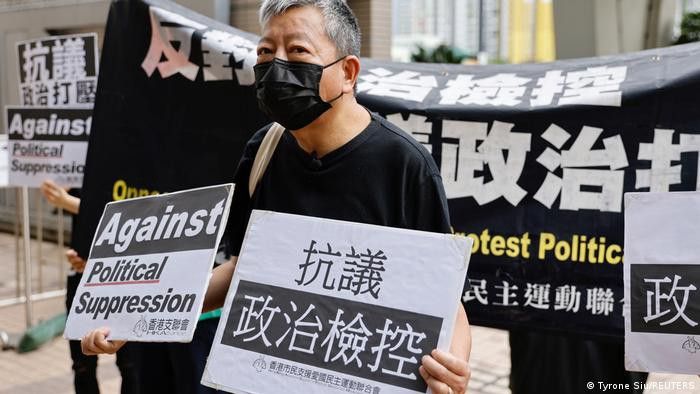When the question of trade unions in China would come up, some of us were fond of saying that there is an independent, democratic trade union movement in the country. It is called the Hong Kong Confederation of Trade Unions.
This is no longer true.
In the last week, news has come out of a decision by the HKCTU to disband. This is an enormous blow to the Chinese working class and to the international labour movement.
It appears that the HKCTU is the latest victim of a Chinese government crackdown not only on the unions, but on all of civil society.
The Hong Kong Professional Teachers’ Union, one of the HKCTU’s largest member unions, voted to disband on 11 September. News emerged this week that the journalists’ union has been accused by a national security official of “having political preferences and receiving foreign funding”. The International Federation of Journalists called this “deeply concerning”.
For more than thirty years, the HKCTU has been a lone voice in China representing workers and defending their rights. Tens of thousands of workers joined unions that were affiliated to it. Its leaders achieved world-wide recognition, in particular its founder and general secretary, Lee Cheuk-yan.
But according to a report in the Hong Kong Free Press, Lee “is currently serving concurrent sentences of 18 months for his participation in the 2019 pro-democracy protests. He also faces a national security charge of ‘incitement to subversion.’” Other leaders of Hong Kong’s unions are also in jail.
What is the labour movement outside of China doing about this?
At the moment, it seems like very little.
No doubt there is some activity happening behind the scenes. Some are cautioning that too loud a protest by free unions outside of China will fuel the claims by the state that the trade unions in Hong Kong, like other civil society organisations, are tools of foreign powers and receive foreign money.
There may well be merit to that argument. One should certainly do nothing to make things worse for the trade unionists of Hong Kong. But that cannot be an excuse for inaction.
Every government that crushes unions likes to claim that they are the tools of shadowy international conspiracies. This is not something invented by the Chinese Communist Party — it is a well-established trope, part of the playbook for every authoritarian regime.
The fact is that the unions in Hong Kong, like unions everywhere, are created by their members, and draw their strength from thousands of workers recruited to their ranks. It is not the occasional gesture of solidarity from a foreign union that gives these unions their strength — that comes from within.
For unions to be saying and doing nothing is sending the wrong signal, and not only to the Chinese Communist government. Governments in places like Iran and Myanmar are regular abusers of workers’ rights, and have often been met by strong resistance from democratic trade unions around the world. The military dictatorship in Myanmar is struggling to be treated as legitimate, with unions playing a leading role in the effort to get them kicked out of the International Labour Organization (ILO) and more recently the United Nations.
No one is saying that we cannot raise the issue of workers’ rights in Iran or Myanmar because that could be used against our comrades in those countries.
The same is true with Hong Kong and China.
It is only by raising our voices, and consistently demanding that all governments, everywhere, respect workers’ rights, that we have any chance of succeeding.
How we do that, and what language we use, of course needs to be guided by what our comrades in those countries tell us is best.
But for the international labour movement today, silence is not an option.
This article appears in this week’s issue of Solidarity.
It also appears as a guest post today on the website of the Arthur Svensson Foundation (Norway).
